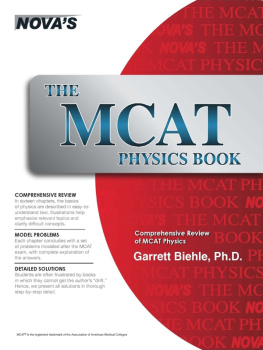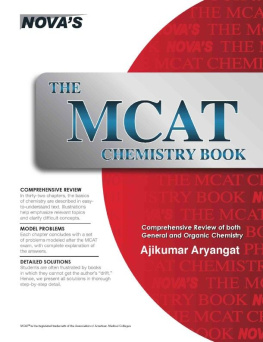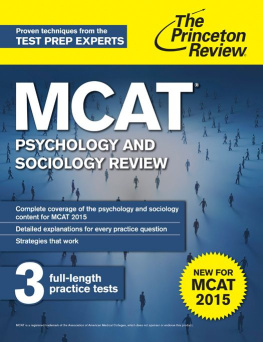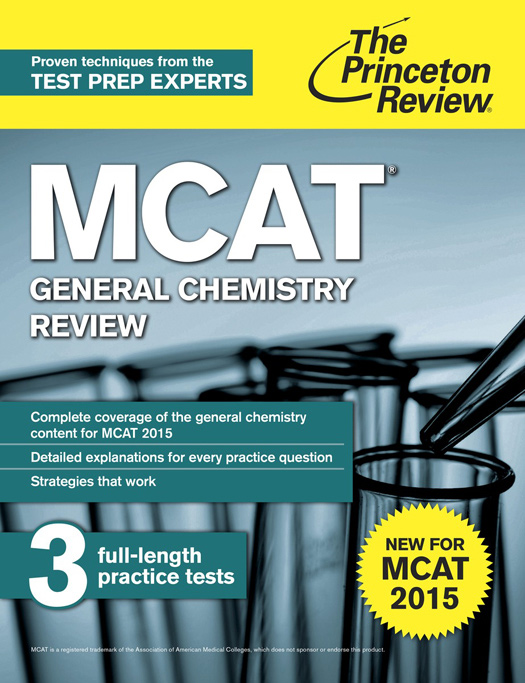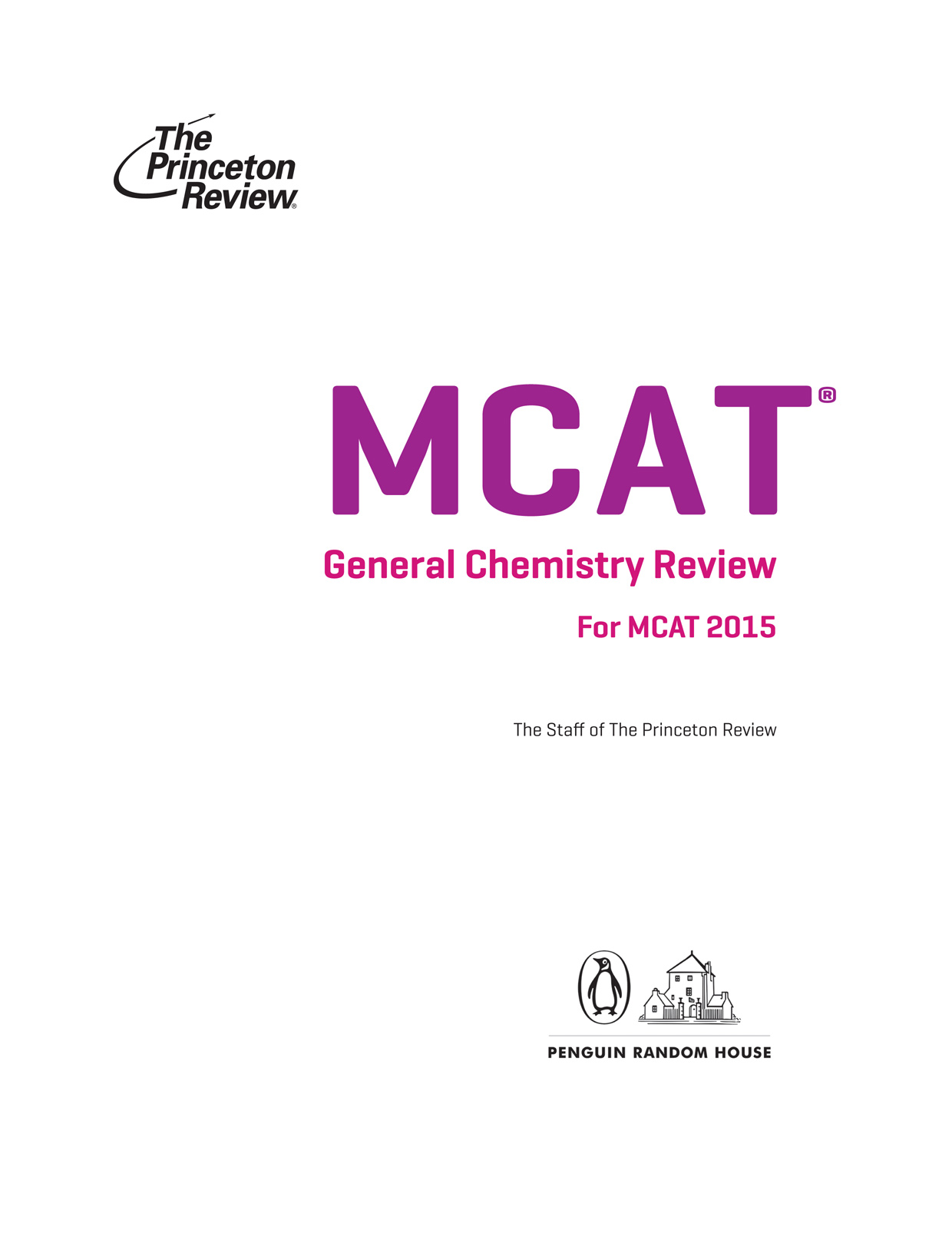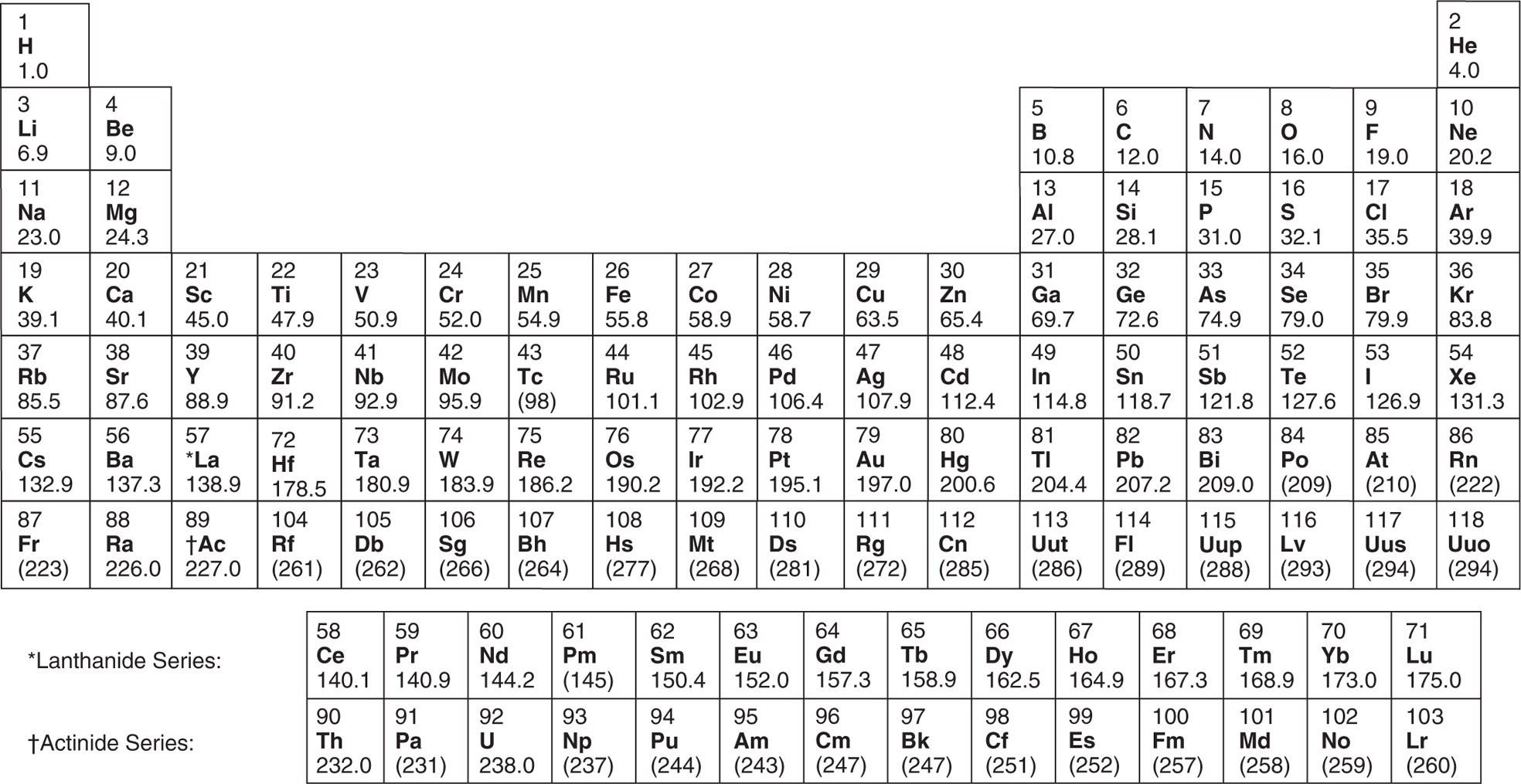

Editorial
Rob Franek, Senior VP, Publisher
Casey Cornelius, VP Content Development
Mary Beth Garrick, Director of Production
Selena Coppock, Managing Editor
Calvin Cato, Editor
Colleen Day, Editor
Aaron Riccio, Editor
Meave Shelton, Editor
Orion McBean, Editorial Assistant
Random House Publishing Team
Tom Russell, Publisher
Alison Stoltzfus, Publishing Manager
Melinda Ackell, Associate Managing Editor
Ellen Reed, Production Manager
Kristin Lindner, Production Supervisor
Andrea Lau, Designer
The Princeton Review
24 Prime Parkway, Suite 201
Natick, MA 01760
E-mail: editorialsupport@review.com
Copyright 2014 by TPR Education IP Holdings, LLC. All rights reserved.
Cover art laboratory/Alamy
Published in the United States by Penguin Random House LLC, New York, and in Canada by Random House of Canada, a division of Penguin Random House Ltd., Toronto.
Terms of Service: The Princeton Review Online Companion Tools (Online Companion Tools) for the Cracking book series and MCAT General Chemistry Review are available for the most recent edition. Online Companion Tools may be activated only once per eligible book purchased. Activation of Online Companion Tools more than once per book is in direct violation of these Terms of Service and may result in discontinuation of access to Online Companion Tools Services.
eBook ISBN: 978-1-101-88241-2
Trade Paperback ISBN: 978-0-8041-2506-2
The Princeton Review is not affiliated with Princeton University.
MCAT is a registered trademark of the Association of American Medical Colleges, which does not sponsor or endorse this product.
Editor: Selena Coppock
Production Artist: Deborah A. Silvestrini
Production Editor: Kiley Pulliam
v3.1
CONTRIBUTORS
Steven A. Leduc
Senior Author
Kendra Bowman
Ph.D., Senior Author
TPR MCAT G-Chem Development Team:
Bethany Blackwell, M.S., William Ewing, Ph.D., Chris Fortenbach, B.S.
Senior Editor, Lead Developer
Bethany Blackwell, M.S.
Edited for Production by:
Judene Wright, M.S., M.A.Ed.
National Content Director, MCAT Program, The Princeton Review
The TPR MCAT G-Chem Team and Judene would like to thank the following people for their contributions to this book :
Patrick Abulencia, Ph.D., Kashif Anwar, M.D., M.M.S., Argun Can, Brian Cato, Nita Chauhan, H.BSc, MSc, Rob Fong, M.D., Ph.D., Neil Maluste, B.S., Chris Manuel, M.P.H., Douglas K. McLemore, B.S., Marion-Vincent L. Mempin, B.S., Donna Memran, Brian Mikolasko, M.D., M.BA, Katherine Miller, Ph. D., Steven Rines, Ph.D., Andrew Snyder, Danish Vaiyani, Christopher Volpe, Ph.D.
Periodic Table of the Elements
MCAT GENERAL CHEMISTRY CONTENTS
Double click on the image to enlarge
Chapter 1
MCAT 2015 Basics
SO YOU WANT TO BE A DOCTOR
So you want to be a doctor. If youre like most premeds, youve wanted to be a doctor since you were pretty young. When people asked you what you wanted to be when you grew up, you always answered a doctor. You had toy medical kits, bandaged up your dog or cat, and played hospital. You probably read your parents home medical guides for fun.
When you got to high school you took the honors and AP classes. You studied hard, got straight As (or at least really good grades!), and participated in extracurricular activities so you could get into a good college. And you succeeded!
At college you knew exactly what to do. You took your classes seriously, studied hard, and got a great GPA. You talked to your professors and hung out at office hours to get good letters of recommendation. You were a member of the premed society on campus, volunteered at hospitals, and shadowed doctors. All thats left to do now is get a good MCAT score.
Just the MCAT.
Just the most confidence-shattering, most demoralizing, longest, most brutal entrance exam for any graduate program. At about 7.5 hours (including breaks), the MCAT tops the list even the closest runners up, the LSAT and GMAT, are only about 4 hours long. The MCAT tests significant science content knowledge along with the ability to think quickly, reason logically, and read comprehensively, all under the pressure of a timed exam.
The path to a good MCAT score is not as easy to see as the path to a good GPA or the path to a good letter of recommendation. The MCAT is less about what you know, and more about how to apply what you know and how to apply it quickly to new situations. Because the path might not be so clear, you might be worried. Thats why you picked up this book.
We promise to demystify the MCAT for you, with clear descriptions of the different sections, how the test is scored, and what the test experience is like. We will help you understand general test-taking techniques as well as provide you with specific techniques for each section. We will review the science content you need to know as well as give you strategies for the Critical Analysis and Reasoning Skills (CARS) section. Well show you the path to a good MCAT score and help you walk the path.
After all you want to be a doctor. And we want you to succeed.
WHAT IS THE MCAT REALLY?
Most test-takers approach the MCAT as though it were a typical college science test, one in which facts and knowledge simply need to be regurgitated in order to do well. They study for the MCAT the same way they did for their college tests, by memorizing facts and details, formulas and equations. And when they get to the MCAT they are surprised and disappointed.
Its a myth that the MCAT is purely a content-knowledge test. If medical school admission committees want to see what you know, all they have to do is look at your transcripts. What they really want to see, though, is how you think. Especially, how you think under pressure. And thats what your MCAT score will tell them.
The MCAT is really a test of your ability to apply basic knowledge to different, possibly new, situations. Its a test of your ability to reason out and evaluate arguments. Do you still need to know your science content? Absolutely. But not at the level that most test-takers think they need to know it. Furthermore, your science knowledge wont help you on the Critical Analysis and Reasoning Skills (CARS) section. So how do you study for a test like this?


